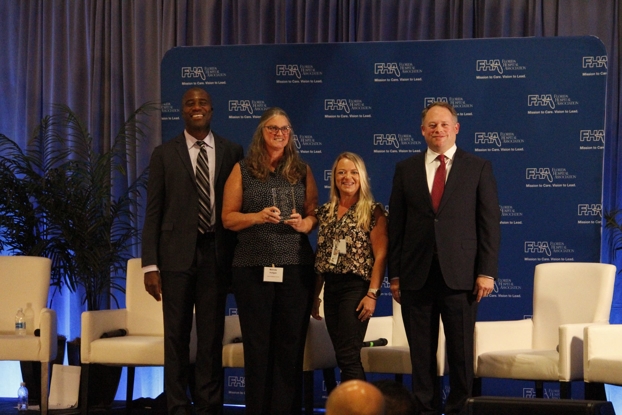Health Literacy and Cancer: Why it's Important to Stay in the Know
- Category: Cancer/Oncology, Health Education Topics, Oncology
- Posted On:
- Written By: Parrish Medical Center

The US Department of Health and Human Services describes health literacy as, “the degree to which individuals have the capacity to obtain, process and understand basic health information and services needed to make appropriate health decisions.” When it comes to a cancer diagnosis and the care involved, being health literate can be a tremendous help in many ways.
From navigating the healthcare system to self-care, here’s why it’s essential for both patients and family members to stay educated about cancer and the care involved.
Communication
Communicating effectively with your doctor can have a positive impact on your treatment and can increase chances for a successful recovery. Understanding medical terms and knowing what to expect may not only ease fears, but can make the cancer treatment process less stressful. Here are some ways health literacy can aid in communicating effectively with your oncologist:
- Keep good records - part of health literacy is knowing how to keep accurate medical and health information. Having records of your current medications, supplements, symptoms and recent testing (such as mammograms or prostate exams) can be useful information to your doctor when planning your treatment or when having to make adjustments to your care.
- Ask questions - Before your doctor appointments, make a list of questions that you would like to ask. By asking questions and getting answers, you are keeping yourself educated and involved in your care.
- Take notes - Your doctor’s visit is most likely packed with advice and instructions — thus leaving you with information overload. If you often feel anxious or worried during your visits, take notes so you can refer back to them later on when you feel a bit more relaxed.
Decision Making
Being involved in your cancer treatment plan and understanding the protocol can positively impact and aid in the recovery process. There are many different types of cancer treatments — surgery, radiation, and chemotherapy just to name a few. By asking appropriate questions, you can work together with your doctor to make the best decisions on what type of treatment is suitable for you and how effective it will be on the type of cancer you have.
Ways to Improve Health Literacy
There are several ways to improve your overall health literacy. Here are some examples:
- Reading/research
From prevention and risk factors to treatment options, there is a plethora of information on the web about cancer. Keeping yourself armed with information can only further develop your health knowledge and keep you involved in your care.
- Support groups/counseling
Support groups and counseling not only provides encouragement, but information and resources to help you cope with your cancer diagnosis. Support groups can help increase health literacy by teaching you how to communicate with your healthcare team, as well as with your loved ones. Many support groups can also direct cancer patients to other resources that may be helpful.
From cancer education and support groups to screening and treatments, Parrish Medical Center is here to help you every step of the way. Our Cancer Care Navigator Program can assist you through the logistics of the healthcare system so you can focus on your recovery. To learn more about increasing your health literacy as well as cancer care, contact the Parrish Cancer Center at 321-529-6202.



